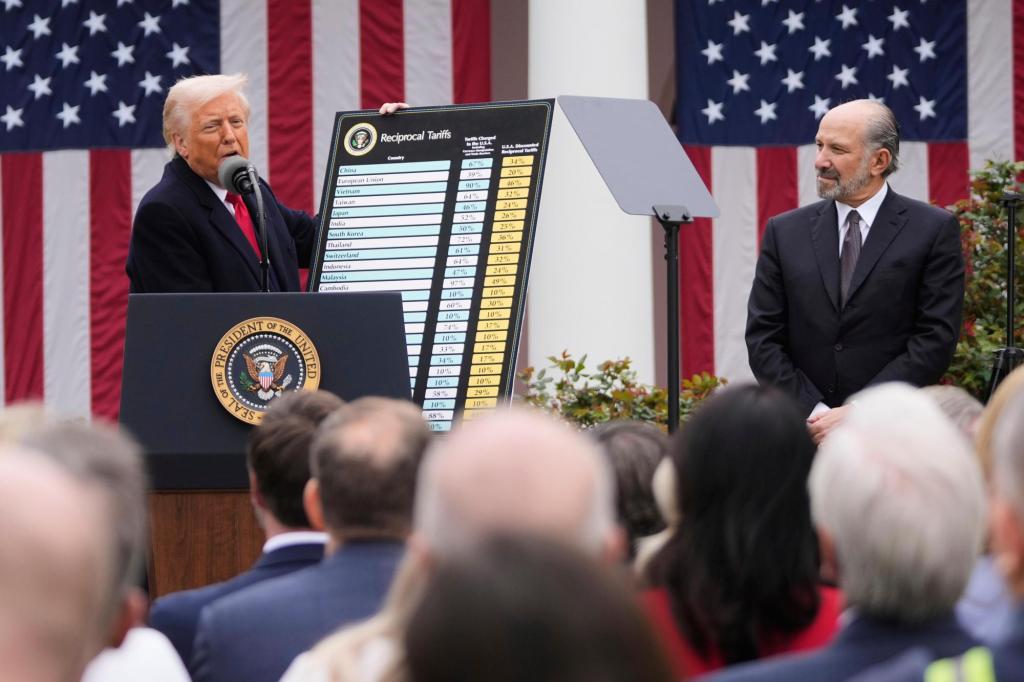Impact of New Tariffs on U.S. Financial Markets and Consumer Spending
In a sweeping move, President Donald Trump has instituted tariffs on foreign imports, resulting in a dramatic decline in the value of U.S. companies. The repercussions were felt across multiple sectors as financial markets experienced their largest drop since the onset of the COVID-19 pandemic, five years ago.
Market Reactions and Economic Concerns
The imposition of tariffs has sparked widespread concern among economists, with many describing the situation as more severe than anticipated. Investors reacted swiftly, selling off shares in businesses they believe will be adversely affected by this change, which can essentially be viewed as a tax on business activities.
Given that consumer spending accounts for approximately 70% of economic activity in the U.S., higher prices resulting from these tariffs could lead to reduced consumer expenditure. “This is a game changer, not only for the U.S. economy but for the global economy,” noted Olu Sonola, head of U.S. Economic Research at Fitch Ratings. “Many countries will likely end up in a recession,” he added.
Sector-Specific Impacts
Here is a closer look at the hardest-hit sectors:
Airlines
Airlines had projected robust profit growth for the year; however, rising prices for essential goods may force consumers to tighten their travel budgets. Notable declines include:
- United Airlines: down 11.6%
- American Airlines: down 8.5%
- Delta Air Lines: down 8.6%
Clothing and Footwear
Major clothing and shoe manufacturers, which typically source their products overseas, will face increased costs due to the tariffs, affecting their bottom line. The stock movements include:
- Nike: down 10.4%
- Under Armour: down 17.4%
- Lululemon: down 11.1%
- Ralph Lauren: down 15.6%
- Levi Strauss: down 11.5%
Retail Sector
Both big box and online retailers are bracing for impact as tariffs will raise costs on imported inventory. These are the notable drops for major retailers:
- Amazon: down 7%
- Target: down 9.5%
- Best Buy: down 14.8%
- Dollar Tree: down 8.4%
- Kohl’s: down 24.4%
Technology
Technology companies that rely on imported parts for their products may see their prices rise, resulting in declines such as:
- Apple: down 8%
- HP: down 13.1%
- Dell: down 15.4%
- Nvidia: down 6.3%
Banks
If a recession occurs, financial institutions may see decreased borrowing as businesses and consumers pull back on spending. Affected banks include:
- Wells Fargo: down 7.5%
- Bank of America: down 8.9%
- JPMorgan Chase: down 5.7%
Restaurants
With consumers growing more wary of their financial outlook, dining expenditures are expected to fall. The stock market showed declines in major restaurant chains:
- Starbucks: down 10.8%
- Cracker Barrel: down 11.1%
- Cheesecake Factory: down 7.3%
Automakers
Interestingly, automakers experienced less severe declines compared to other sectors, potentially due to their reliance on domestic steel and aluminum. Stock performance included:
- General Motors: down 3%
- Ford: down 4%
- Tesla: down 4.4%
- Stellantis: down 7.9%
Conclusion
The economic ramifications of the recently imposed tariffs are poised to disrupt numerous sectors and potentially hinder consumer spending. As the situation develops, continuous monitoring of market trends will be crucial to assessing the long-term impacts on the U.S. economy.

